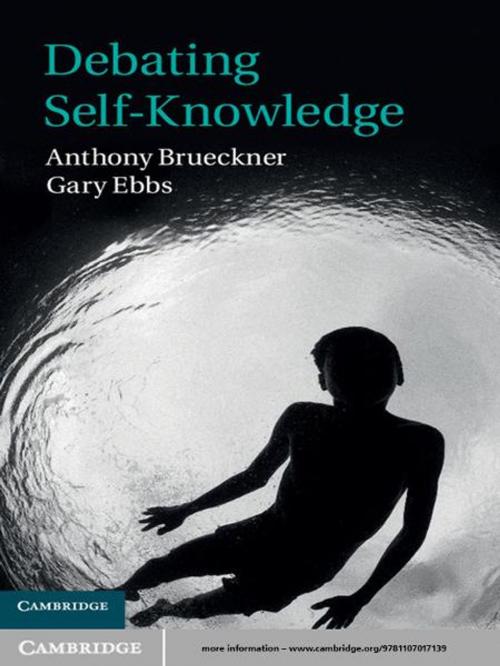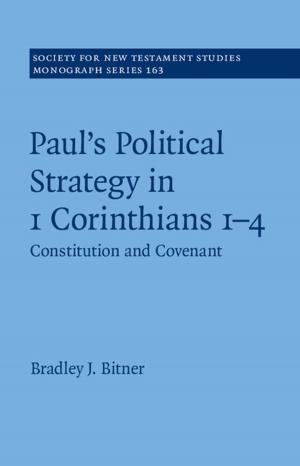| Author: | Anthony Brueckner, Gary Ebbs | ISBN: | 9781139508162 |
| Publisher: | Cambridge University Press | Publication: | June 21, 2012 |
| Imprint: | Cambridge University Press | Language: | English |
| Author: | Anthony Brueckner, Gary Ebbs |
| ISBN: | 9781139508162 |
| Publisher: | Cambridge University Press |
| Publication: | June 21, 2012 |
| Imprint: | Cambridge University Press |
| Language: | English |
Language users ordinarily suppose that they know what thoughts their own utterances express. We can call this supposed knowledge minimal self-knowledge. But what does it come to? And do we actually have it? Anti-individualism implies that the thoughts which a person's utterances express are partly determined by facts about their social and physical environments. If anti-individualism is true, then there are some apparently coherent sceptical hypotheses that conflict with our supposition that we have minimal self-knowledge. In this book, Anthony Brueckner and Gary Ebbs debate how to characterize this problem and develop opposing views of what it shows. Their discussion is the only sustained, in-depth debate about anti-individualism, scepticism and knowledge of one's own thoughts, and will interest both scholars and graduate students in philosophy of language, philosophy of mind and epistemology.
Language users ordinarily suppose that they know what thoughts their own utterances express. We can call this supposed knowledge minimal self-knowledge. But what does it come to? And do we actually have it? Anti-individualism implies that the thoughts which a person's utterances express are partly determined by facts about their social and physical environments. If anti-individualism is true, then there are some apparently coherent sceptical hypotheses that conflict with our supposition that we have minimal self-knowledge. In this book, Anthony Brueckner and Gary Ebbs debate how to characterize this problem and develop opposing views of what it shows. Their discussion is the only sustained, in-depth debate about anti-individualism, scepticism and knowledge of one's own thoughts, and will interest both scholars and graduate students in philosophy of language, philosophy of mind and epistemology.















